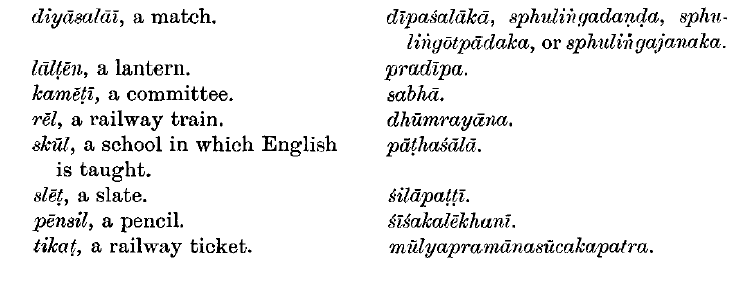No CrossRef data available.
Published online by Cambridge University Press: 15 March 2011

page 512 note 1 It must be remembered that literary “Hindī” is only used for prose. For verse either Braj Bhākhā or Awadhī is employed.
page 512 note 2 Edited and translated by Clint, & Slater, in JASB., xxi, pp. 1 ff., and xxiv, pp. 79 ff. (1852–1855).Google Scholar
page 514 note 1 The list of words given by him as examples is instructive. Most of them are borrowed from English. I give it here. In the first column is a word commonly used, and in the second the literary form preferred by Paṇḍits, but unintelligible to anyone who is not familiar with Sanskrit.

page 515 note 1 Both these sentences mean literally, “Yesterday I went to your house to see you, (but) the door was closed and I did not meet you. Becoming without resource, I went away.”
page 516 note 1 For this word the Paṇḍit employs the Arabic word 'ādat, because it is in every-day use, even among Hindūs.